|
A lot has changed since we originally wrote our blog, “What Makes Us Different From Other Studios” back in November 2016, so I decided that we needed to write an updated version! Besides our Music Buck system and our very own Early Childhood curriculum which we wrote about in the first blog, we’ve got a lot of new things that makes us different than any other studio out there! Student of the Week is something that we really love about our studio. Each teacher can choose a student who stood out that week in their lesson- or not choose anyone if there was nothing to write home about! Students’ pictures are displayed on our Student of the Week board at the studio. They also get 10 music bucks and a printed certificate, and the best part- our Student of the Week yard sign, which they can sign their name on the back and keep at home for the week! Our Adult Performance Opportunity called the Champagne Serenade is also new this year. We wanted our adult students to have a casual and fun performance experience to showcase what they’ve been working on, and meet our other adult students! We are really excited to host our first Serenade this Saturday, May 4th. We get a lot of compliments and positive feedback from our parents about our sense of community, which has always been super important to us: we really strive to make our studio feel like a family. We’ve created an inviting studio space for our students who have lessons there, but we also want our students who have in-home lessons to feel just as much a part of the studio. Each Sunday we send out a weekly email newsletter that includes Students of the Week, upcoming student birthdays and events, our Merry Musicians preschool class, and our latest blog. Recital Prep/Theory Group Classes are something we’ve added since we opened our studio space. We offer 2-3 group classes before each recital and DMTA festival, so that students can perform their prepared pieces in front of a small group and get feedback from the teacher. As of now, we have a group theory class every February for those students who are taking the Texas State Theory Exam. We know that there are amazing teachers all over the metroplex, but something that helps us stand out from the rest is the time and care we put into matching students with the right teacher based on personality and learning goals. Before we enroll any new student, we conduct a phone interview with potential families so that we can pair them with a teacher that we think they will mesh well with. The right fit between student and teacher is extremely important for happiness and longevity in lessons!
Last but not least, we are very proud to say that all of our teachers at Music So Simple are Dallas Music Teachers Association (DMTA) members, with three of our teachers serving on the board. We think that being involved in our local association is essential for continuing education, personal growth, and extra opportunities for our students. We are really proud of the studio we’ve built in the last 3 years, and we will continue to make improvements where needed. We value feedback from all of our families and most importantly we always put people first!
0 Comments
Music SO Simple Honor Roll is a wonderful way of motivating certain students in the spring who go above and beyond in their lessons. The fall semester seems to be sort of the warm up for the spring, and winter break gives our students time to rest in preparation to come back and hit the ground running. Honor Roll lasts 14 weeks, and students earn a certain number of points each week based on their practice, theory, having their materials, adding new pieces, and participating in extra DMTA/TMTA opportunities. Honor Roll requires the student, parent, and teacher to all work together to reach the finish line. There are a couple of big events in the spring that require Honor Roll students to step up their practice. DMTA Achievement Auditions is an event in April where students learn and memorize 3 different genres of pieces (one baroque, one sonata/sonatina, and one of their choice). Playing three different pieces by memory for a judge is no easy task! We usually begin learning these pieces by mid January. May Recital is usually the last event of the spring, and students are expected to play one or two pieces from memory. This recital symbolizes all that each student has learned over the entire school year, and it’s a great moment of achievement for them to see how far they’ve progressed. The TMTA state theory test is in January and most of our students begin preparing for it in the fall. One of the areas of Honor Roll is completing theory homework, which helps our students keep up with their theory work even after the state theory test is over. Having materials ready at the lesson seems obvious, but sometimes students forget to bring their books or they can’t find their books when it’s lesson time. Having your books ready not only maximizes productivity in your lesson, but it’s also a great life skill- students learn to be organized and prepared when it’s time to work. Many of our students began the 40 piece challenge at the beginning of the school year in September, so Honor Roll is a great way to keep them motivated to finish the challenge. The 40 piece challenge and Honor Roll go hand in hand as they both require focus, commitment, and achievement. To read more about the 40 piece challenge, check out our blog. Honor Roll is a great way to award those special students who work extra hard in their music study. Students who do participate and fulfill the requirements for Honor Roll are recognized at the May Recital and are given awards. To see the complete Honor Roll 2017 Requirements, click here. Grand Prize for 2017:
Mozart Bust -Meredith Manley One of the main struggles I have in lessons is getting my students excited about their theory work. I try to do theory with most students at the end of the lesson if there is time, and then I give them a weekly assignment. Sometimes, the response I get is groaning followed by incomplete work the next week. I have yet to figure out if the assignments are not completed because students don’t read through the lesson notes I write for them when they practice, which can’t be the case since they are checking off the days they practice, or if it is intentionally avoided. I know that playing pieces is way more fun than written work, but is it really that bad? You might be asking...is theory work that important anyway? Isn’t the point of lessons to learn new pieces and move on to harder ones? The answer to all of these is yes, however, the student will be more successful and gain more skills if they have the theory knowledge to understand their pieces. I think there are a few things to consider when deciding which route will be best in getting students to follow through and do the written work. I have to assume that my students are doing their theory without the help of a parent, although if a parent is able to help, that is encouraged. The type of theory book they are given really does matter; there are various method books, each with their own theory book. Some method books move rather quickly with concepts, while others are slower, so choosing the right book for the right student is key. Most theory books present the concepts in a fun and engaging way, whether it’s using notes on the staff to finish words to a story, going on a treasure hunt, or answering questions as if the student is on game show. A common theory book we use called Just The Facts is a bit drier, but it is the best prep for our students to take the state theory test each year. So as teachers we really do have to consider some factors when choosing books for each individual student. What’s the best way to get students excited about “boring” theory work? I’ve had a lot of luck with giving incentives for completed theory assignments!! Music bucks are a great short-term reward- if students do extra theory work, they can earn a buck per page. A long-term incentive is working hard to prepare for the state theory exam, and then receiving a medal for scoring a 90 or above. Sometimes I let students test me on my theory knowledge or aural skills, which makes them feel like they are the teacher and they get to correct me if I’m wrong- a little taste of power can go along way! So, the next time your child wonders why they have to do their theory, you can explain to them that it’s an essential part of playing an instrument and will actually help them learn (and even memorized) their music much quicker!
|
Archives
July 2024
Categories
All
|
|
|
MUSIC SO SIMPLE
|
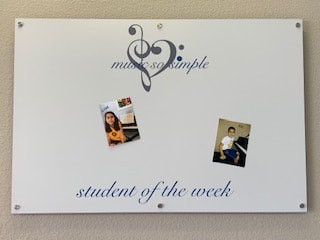
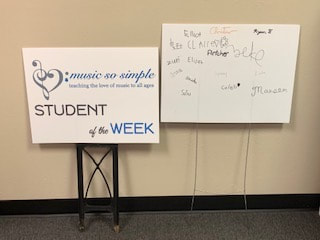
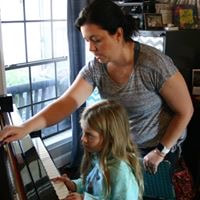
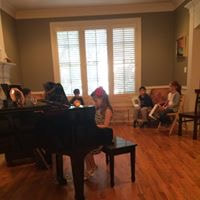
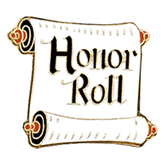
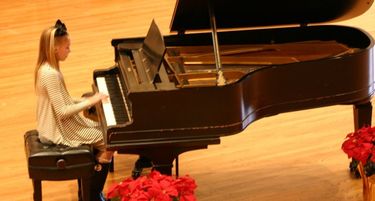

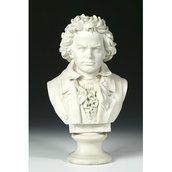
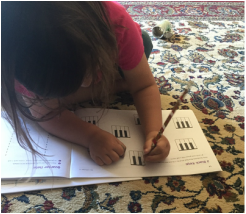
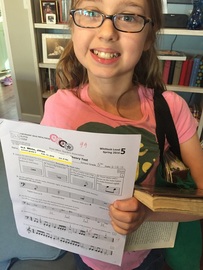
 RSS Feed
RSS Feed